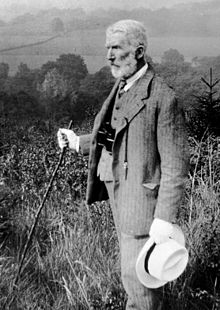

James Rutherford Morison (10 October 1853, Hutton Henry County Durham, England – 9 January 1939, Newcastle upon Tyne, England) was a British surgeon. [1]
In 1874, he graduated from the University of Edinburgh, and as a young man was an assistant and "surgical dresser" to Joseph Lister (1827–1912). Later, he became a surgeon at the Newcastle Royal Infirmary and a professor at the University of Durham. He was considered by his students to be an excellent teacher. In 1893 he was elected a member of the Harveian Society of Edinburgh. [2] [3]
He is remembered for the eponymous " Morison's pouch", also known as the hepatorenal recess, being described as an anatomical space between the under surface of the liver and the right kidney. His name is also associated with a surgical incision for access to sigmoid colon and pelvis, particularly used if the midline is very scarred from previous surgery [4] (Rutherford Morison incision), and a medical instrument (Rutherford Morison tissue forceps).
During World War I, he was stationed at the Northumberland War Hospital, where he introduced a paste for treatment of contaminated wounds. This substance was to become known as "BIPP", an acronym for bismuth iodoform paraffin paste.
References
- ^ Morison, James Rutherford (1853–1939). The Royal College of Surgeons of England
- ^ Watson Wemyss, Herbert Lindesay (1933). A Record of the Edinburgh Harveian Society. T&A Constable, Edinburgh.
- ^ Minute Books of the Harveian Society. Library of the Royal College of Physicians of Edinburgh.
- ^ "Surgical Incisions". Retrieved 27 May 2013.


James Rutherford Morison (10 October 1853, Hutton Henry County Durham, England – 9 January 1939, Newcastle upon Tyne, England) was a British surgeon. [1]
In 1874, he graduated from the University of Edinburgh, and as a young man was an assistant and "surgical dresser" to Joseph Lister (1827–1912). Later, he became a surgeon at the Newcastle Royal Infirmary and a professor at the University of Durham. He was considered by his students to be an excellent teacher. In 1893 he was elected a member of the Harveian Society of Edinburgh. [2] [3]
He is remembered for the eponymous " Morison's pouch", also known as the hepatorenal recess, being described as an anatomical space between the under surface of the liver and the right kidney. His name is also associated with a surgical incision for access to sigmoid colon and pelvis, particularly used if the midline is very scarred from previous surgery [4] (Rutherford Morison incision), and a medical instrument (Rutherford Morison tissue forceps).
During World War I, he was stationed at the Northumberland War Hospital, where he introduced a paste for treatment of contaminated wounds. This substance was to become known as "BIPP", an acronym for bismuth iodoform paraffin paste.
References
- ^ Morison, James Rutherford (1853–1939). The Royal College of Surgeons of England
- ^ Watson Wemyss, Herbert Lindesay (1933). A Record of the Edinburgh Harveian Society. T&A Constable, Edinburgh.
- ^ Minute Books of the Harveian Society. Library of the Royal College of Physicians of Edinburgh.
- ^ "Surgical Incisions". Retrieved 27 May 2013.